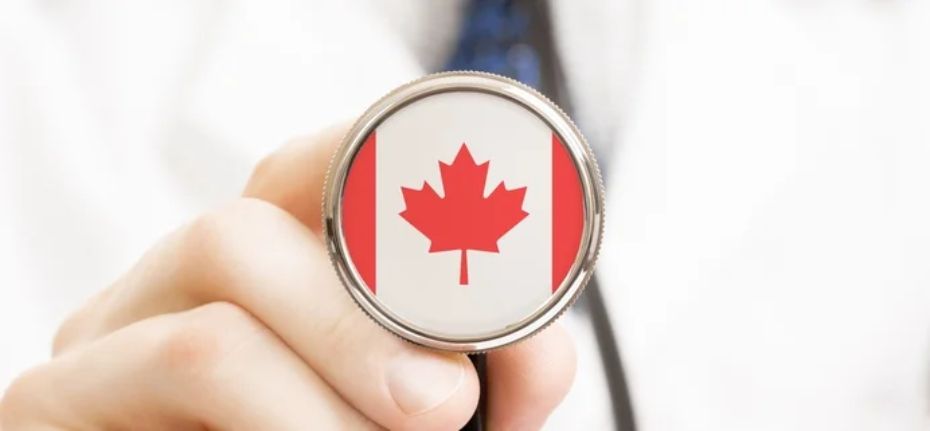Canada has long been a global leader in welcoming refugees. With a commitment to offering safe haven to those fleeing conflict, persecution, and hardship, Canada has opened its doors to thousands of refugees every year. But welcoming refugees is just the start. Ensuring they receive proper refugee health care is equally important, as good health is the foundation for rebuilding lives. Despite efforts, refugees in Canada still face challenges in accessing healthcare, making it a topic that needs constant attention.

Online Gambling as a Tool for Funding Public Health Programs in Canada
Canada funds healthcare programs from many sources, like federal and provincial budgets. But with growing needs, it’s crucial to explore innovative avenues for financial support.
Among these, online gambling stands out as a substantial contributor through tax revenue. As this sector continues to grow, it presents a unique opportunity to generate funds while ensuring a responsible and regulated environment for players. If you’re on the hunt for reliable online casinos in Ontario, this best-of selection highlights platforms that operate within the province’s strict regulatory framework. By choosing these top-rated options, you’ll enjoy a safe and enjoyable gambling experience, while also contributing to the funding of vital public health initiatives that benefit your community.
As we explore the current state of refugee healthcare in Canada, it’s important to understand how the IFHP works and why it remains a critical lifeline for refugees in need.
Current State of Refugee Healthcare in Canada

Understanding the Interim Federal Health Program (IFHP)
The Interim Federal Health Program (IFHP) is a federal healthcare initiative that ensures refugees have access to essential healthcare services. Here’s what it covers:
- Basic healthcare: This includes doctor visits, hospital care, and diagnostic services.
- Emergency care: For urgent health needs.
- Medication coverage: For conditions requiring prescription drugs.
Who Does IFHP Help?
- Refugee Claimants: Individuals who have made a refugee claim in Canada.
- Protected Persons: Those granted refugee protection.
- Resettled Refugees: Individuals selected abroad and brought to Canada for resettlement.
While the IFHP is critical, healthcare in Canada is largely delivered at the provincial level. Refugees who become permanent residents transition to provincial healthcare plans. Some provinces, like Ontario, have introduced programs to fill gaps, such as the Ontario Temporary Health Program, which provides urgent care for refugees who may not yet qualify for provincial coverage.
Challenges Refugees Face in Accessing Healthcare
One big problem Canada’s refugees face is the delay in getting healthcare coverage. It can take weeks, or even months, for some to understand how to access services. Many refugees are unfamiliar with Canada’s healthcare system, leading to confusion about what’s covered and where to go for care.
Certain groups, like privately sponsored refugees or those from Designated Countries of Origin (DCOs), may experience gaps in coverage. These gaps can leave individuals without necessary medication, mental health support, or even prenatal care for pregnant women.
Key Numbers About Refugees and Healthcare
- Refugees welcomed annually: Canada resettles about 30,000–40,000 refugees each year, depending on global needs and policies.
- Healthcare usage: Refugees often require urgent care when they arrive due to pre-existing conditions or trauma.
- Common health concerns:
- Mental health issues, including PTSD.
- Chronic illnesses like diabetes or heart disease.
- Maternal healthcare for refugee women.
Major Changes in Refugee Healthcare Over the Years
2012 Cuts to IFHP
In 2012, the federal government made significant cuts to the IFHP, restricting coverage for many refugees. These cuts were highly controversial and left refugees without access to essential healthcare. Many healthcare providers and advocates called it cruel and unnecessary.
2014 Federal Court Decision
The courts stepped in, ruling the cuts as “cruel and unusual treatment” under Canadian law. This decision marked a turning point, forcing the government to reconsider its policies.
2016 Restoration of IFHP
The IFHP was fully restored in 2016 under the federal Liberal government. This was a major victory for refugee advocates and has since ensured refugees can access healthcare without as many barriers.
Key Players in Refugee Healthcare
Canadian Doctors for Refugee Care (CDRC)
The Canadian Doctors for Refugee Care (CDRC) has been a powerful voice for refugee health care in Canada. They played a key role in reversing the 2012 cuts to the IFHP by organizing National Days of Action in over 20 cities. These events saw Canada’s doctors rallying to highlight the impacts of the cuts. The CDRC continues to advocate for better policies, such as ending the Safe Third Country Agreement (STCA).
Canadian Association of Refugee Lawyers (CARL)
The Canadian Association of Refugee Lawyers (CARL) takes the fight for refugee healthcare to the courtroom. They’ve been instrumental in challenging unfair policies, including the 2012 IFHP cuts, which the Federal Court ultimately ruled unconstitutional.
Justice for Children and Youth (JFCY)
Refugee children face unique healthcare challenges, and Justice for Children and Youth (JFCY) ensures they aren’t overlooked. From securing access to basic vaccinations to advocating for trauma-informed mental health services, JFCY focuses on the well-being of young refugees.
Local and Provincial Support Programs
Provinces like Ontario have introduced temporary healthcare programs to fill gaps in coverage. Programs like the Ontario Temporary Health Program showcase how local efforts can significantly impact the broader refugee program in Canada.
Programs and Efforts Making a Difference
| Program/Initiative | What It Does | Impact | How You Can Contribute |
|---|---|---|---|
| Interim Federal Health Program (IFHP) | Provides basic medical care, emergency treatment, and mental health support for refugees and asylum seekers. | Since its restoration in 2016, the IFHP has helped thousands access essential healthcare services. | Learn about the IFHP and advocate for its expansion and improvement. |
| Advocacy Campaigns | National Days of Action and other initiatives educate the public and policymakers about healthcare gaps. | Raised public awareness and encouraged policy changes by highlighting the importance of healthcare. | Participate in events, write to officials, or share resources online. |
| Refugee HOMES Monitoring Tool | Tracks adverse health outcomes caused by gaps in refugee healthcare. | Data from the tool has been used to advocate for improved healthcare policies, especially mental health. | Share experiences with the tool or use its findings to raise awareness. |
Biggest Challenges Refugees Face
- Mental Health Challenges: Many refugees arrive with deep trauma from war, displacement, or family separation. However, mental health services are not always easy to access due to long wait times or cultural barriers.
- Safe Third Country Agreement (STCA): This agreement requires refugees entering from the U.S. to claim asylum there first, often pushing them into unsafe conditions. Advocates argue that this policy contradicts Canada’s humanitarian values.
- Language and Cultural Gaps: Healthcare systems can be difficult to navigate, especially for those who don’t speak English or French. Refugees often need interpreters or culturally sensitive care, which isn’t always available.
Stories of Progress and Hope
The restoration of the IFHP in 2016 was a major win for Canada’s refugees. Before this, many couldn’t access even basic care. One refugee mother from Syria, for example, couldn’t get her life-saving medication until the program returned. Clinics like Crossroads in Toronto now see more families getting the healthcare they need.
Legal victories have also played a big role. Groups like CARL helped overturn harmful policies, such as the cuts to refugee healthcare. A key win in 2014 labelled these cuts as “cruel,” paving the way for better healthcare access.
How Canada Can Do Better for Refugees
- Simplify Access: Make it easier for refugees to navigate health issues in Canada.
- Consistent Support Across Provinces: Ensure all provinces provide equal support to refugees.
- Expand Mental Health Services: Address trauma and mental health needs more effectively.
What You Can Do to Help
- Donate: Support organizations like CDRC and CARL.
- Advocate: Write to your local MP about improving refugee healthcare.
- Volunteer: Join local groups that assist refugees.
- Raise Awareness: Share information about the importance of healthcare for refugees.
Canada has made strides in supporting refugee health care, but there’s more to be done. Healthcare for refugees in Canada is a basic human right and essential for their well-being. By improving policies and support programs, Canada can continue its legacy as a compassionate, welcoming nation.
